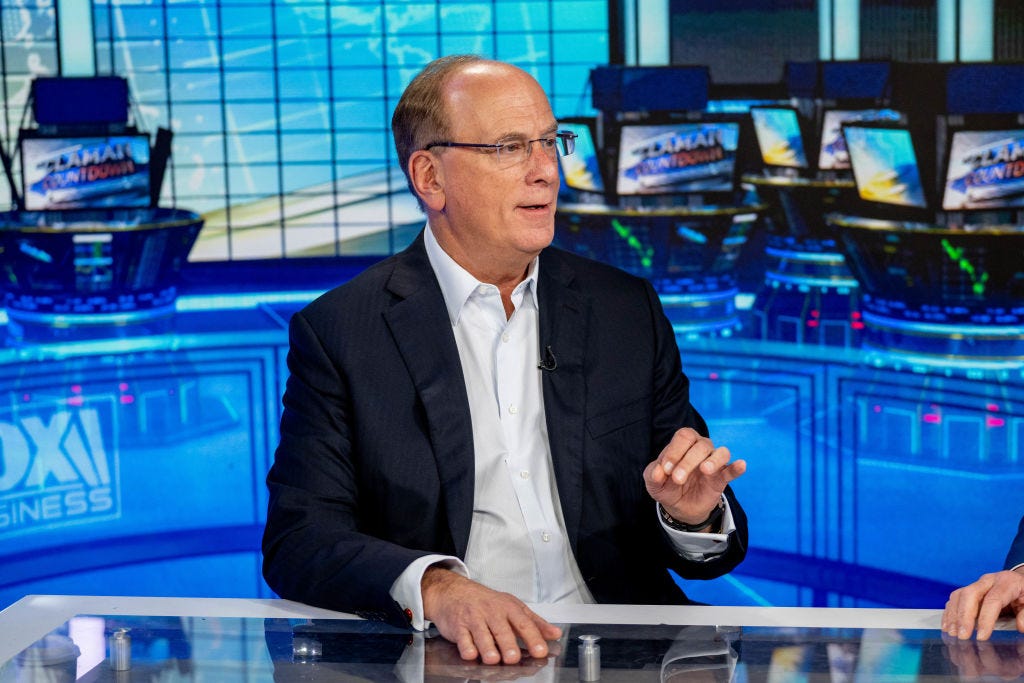Eros and education (via a Twitter pile-on)
An adventure I had on the web this week, and the best I found
People worry that machines will become too smart and take over the world, but the real problem is that they are too stupid and already have.
Pedro Domingos. (Thanks to a subscriber who sent this in response to an essay I posted two weeks ago.)
The Disadvantages of an Elite Education
Our best universities have forgotten that the reason they exist is to make minds, not careers
A classic article from 15 years ago. And the cool thing is that you can listen to it. Could have done with some editing, but then I’m impatient for content and others will be very happy with its storytelling style.
The first disadvantage of an elite education, as I learned [when a plumber arrived at my house] that day, is that it makes you incapable of talking to people who aren’t like you. Elite schools pride themselves on their diversity, but that diversity is almost entirely a matter of ethnicity and race. With respect to class, these schools are largely—indeed increasingly—homogeneous. Visit any elite campus in our great nation and you can thrill to the heartwarming spectacle of the children of white businesspeople and professionals studying and playing alongside the children of black, Asian, and Latino businesspeople and professionals. At the same time, because these schools tend to cultivate liberal attitudes, they leave their students in the paradoxical position of wanting to advocate on behalf of the working class while being unable to hold a simple conversation with anyone in it. Witness the last two Democratic presidential nominees, Al Gore and John Kerry: one each from Harvard and Yale, both earnest, decent, intelligent men, both utterly incapable of communicating with the larger electorate.
Postscript on the previous item
I tweeted the first few sentences of my extract above in a five tweet thread and all was quiet for a while. A few people liked and retweeted it. Then the Twitter algorithm decided to promote me and the brownshirts turned up. I became the main character (HT: a reader for the reference) in some tiny pocket of the teeming culture wars out there.

Quite the education it was. Here’s a fairly representative, and by no means the worst of what was at least a thousand tweets.


Twitter would be able to stop this with the tiniest bit of attention by its bots. But of course those bots aren’t trying to moderate things, because there’s too much money to be made. It was so obviously a misunderstanding — starting the with the fact that they were someone else’s words — that I didn’t mind the experience. It was kind of fun peeking into my feed after half an hour and finding another pile of nonsense. But had I been an adolescent or not fairly well inured to that kind of thing with various blog moderation wars of the mid aughts, then it could have been pretty unpleasant. It seems reasonable to speculate that these platforms must by now be responsible for hundreds if not thousands of suicides.
Running your own amateur misinformation campaign
One of the people in the pile-on may want to be a journalist or a sleuth of some kind. He did some research on the guy I’d quoted and came up with this. Obviously ‘my man’ had been caught with his pants down.



Anyway, it’s a marvellous piece. A few paragraphs to give you the flavour.
All of this was known to Socrates, the greatest of teachers, and laid out in the Symposium, Plato’s dramatization of his mentor’s erotic pedagogy. We are all “pregnant in soul,” Socrates tells his companions, and we are drawn to beautiful souls because they make us teem with thoughts that beg to be brought into the world. … The Symposium, in which the brightest wits of Athens spend the night drinking, discoursing on love, and lying on couches two by two, is charged with sexual tension. But Socrates wants to teach his companions that the beauty of souls is greater than the beauty of bodies. …
Can there be a culture less equipped than ours to receive these ideas? Sex is the god we worship most fervently; to deny that it is the greatest of pleasures is to commit cultural blasphemy. In any case, how can you have an eros of souls if you don’t have souls? Our inability to understand intimacy that is neither sexual nor familial is linked to the impoverishment of our spiritual vocabulary. Religion still speaks of the soul, but to the popular mind, at least, it means something remote from our earthly self.
Another blasphemy. If there’s one god our culture worships as piously as sex, it’s children. But sex and children, sexual intimacy and familial intimacy, have something in common—beyond the fact that one leads to the other: both belong to us as creatures of nature, not as creators in culture. …
That is why, for the Greeks, the teacher’s relationship with the child was regarded as more valuable and more intimate than the parents’. Your parents bring you into nature, but your teacher brings you into culture. Natural transmission is easy; any animal can do it. Cultural transmission is hard; it takes a teacher. But Socrates also inaugurated a new idea about what teaching means. His students had already been educated into their culture by the time they got to him. He wanted to educate them out of it, teach them to question its values. His teaching wasn’t cultural, it was counter-cultural. …
What attracts professors to students, then, is not their bodies but their souls. Young people are still curious about ideas, still believe in them—in their importance, their redemptive power. Socrates says in the Symposium that the hardest thing about being ignorant is that you’re content with yourself, but for many kids when they get to college, this is not yet true. They recognize themselves as incomplete, and they recognize, if only intuitively, that completion comes through eros. So they seek out professors with whom to have relationships, and we seek them out in turn. Teaching, finally, is about relationships. It is mentorship, not instruction. Socrates also says that the bond between teacher and student lasts a lifetime, even when the two are no longer together. And so it is. Student succeeds student, and I know that even the ones I’m closest to now will soon become names in my address book and then just distant memories. But the feelings we have for the teachers or students who have meant the most to us, like those we have for long-lost friends, never go away. They are part of us, and the briefest thought revives them, and we know that in some heaven we will all meet again.
Oh what a tangled web: ESD
A powerful indictment of the latest craze for ‘ethical investment’. Naturally enough the spinmeisters are ready and spinning:
In the last few years, trillions of dollars have flowed into stock funds that are focused on environmental, social, and governance (ESG) issues. These funds appeal to our better angels, using slick marketing to encourage investment in socially-responsible companies. The individuals and institutions that invest in such funds likely believe their money is supporting companies that are reducing climate emissions, treating their workers well, and keeping excessive pay for executives in check.
But, for the most part, that isn't happening.
Michael Neilsen on vision papers in science
Many of the papers I most admire are vision papers. Rather than abstractly define what a vision paper is, here's a list of a few examples of such papers, to convey the gist:
Alan Turing's paper, crucial for modern computer science. Turing also wrote important vision papers on morphogenesis and artificial intelligence;
Alan Kay's paper, crucial for modern interactive personal computing;
Alexei Kitaev's paper, which founded the field of topological quantum computing;
Alexander Rich's paper on the RNA world as a precursor to modern biology …
The immediate motivator for the present notes is a combination of observations I find surprising: (a) vision papers often play a crucial role in instigating new fields of science; and yet (b) the kind of thinking they involve is of a type that scientists often don't publicly do much of; indeed (c) the style of thinking involved is sometimes disparaged by many (not all) scientists. …
When vision papers are published, they're … rarely much respected. … Many important vision papers are ignored early, with success coming much later, if at all. This all seems like a curious combination. What's going on? When are these papers valuable (or not)? If it's true that vision papers sometimes play a crucial role in science, then is it a bad thing they may be regarded negatively? Indeed: why are they regarded negatively?
If you’re interested I had my two cents worth in comments.
Why are we all working so hard?
The intensification of work doesn’t seem to be making us richer, but it does appear to be making us sicker, by Sarah O’Connor in the FT
The proportion of employees who “strongly agree” their job requires that they work “very hard” increased from 30 per cent in 1992 to 46 per cent in 2017. The share who say they work to “tight deadlines” for at least three quarters of the time has increased from 53 per cent to 60 per cent. And the share who say they work at “very high speed” for at least three quarters of the time has swelled from 23 per cent to 45 per cent.
What is striking about this trend is that it’s happening to everyone. “It’s not just the Amazon production line person who’s had their work intensified, it’s the London commuter and the new solicitor,” says Francis Green, a professor at UCL who has studied the phenomenon for years. According to an analysis by the Resolution Foundation think-tank, just over two-thirds of employees in the top quarter of the pay ladder said they worked “under a great deal of tension” in 2017. The same was true for half of those in the bottom quarter for pay, but this latter group has experienced the biggest increase in tension since the 1990s. Studies have found work intensification among managers, nurses, aerospace workers, meat processing workers, schoolteachers, IT staff and carers. There is also evidence of work intensification in Europe and the US. …
A new study by academics Tom Hunt and Harry Pickard suggests that “working with high intensity” increases the likelihood of people reporting stress, depression and burnout. They are also more likely to work when sick. Data from the UK Health and Safety Executive shows that the proportion of people suffering from work-related stress, depression or anxiety was rising even before the pandemic hit.
Katelyn Jetelina: The next generation of COVID vaccines
One way to get ahead of the virus is to anticipate the dominant variant this winter, just like we do with the flu each year.
For flu, scientists meet annually to evaluate new circulating strains and determine if an updated vaccine formula is needed. … I agree that we adapt this process for COVID-19. But I can’t highlight enough how incredibly challenging this is right now. For several reasons:
SARS-CoV-2 is changing 4 times faster than the flu due to high transmission.
We have no idea how this virus will mutate. We haven’t had enough time to see ladder-like patterns, like we see with flu. We think Omicron will continue to mutate—there’s a 70% chance we will not have another Omicron-like event—but this is just an educated guess.
For flu, there is just one main vaccine platform (egg-based). With COVID-19 we have a few. Timelines, processes, manufacturers’ experience, and facility capacity vary for each.
Because of the predictive power and manufacturing experience with flu vaccine, no new clinical data is required by the FDA each year. With COVID19, though, the FDA requires vaccine-specific safety profiles and effectiveness data.
Meanwhile …
Machiavelli contemplates the fate of Donald Trump
I’m sorry I’ll read that again. Machiavelli contemplates the fate of Scott Morrison.
I’m sorry I’ll read that again. Machiavelli contemplates the fate of Girolamo Savonarola

Lorenzo de Medici contemplated the same thing …
Regulation: we need it, but it’s dysfunctional









